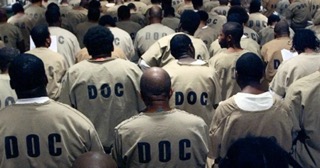
Mass Incarceration, From the View of Virginia’s Department of Corrections
By Daniel J. LaLonde Virginia’s mass incarceration problem started in the late 1960s and early 1970s. In 1925, Virginia’s prison population was 1,920.[1] In 1925, .0008% of Virginia’s population was incarcerated.[2] Between 1925 and 1965, Virginia’s prison population remained relatively steady.[3] If, between 1965 and 2005, the prison population grew at the 1925 to 1965 pace, Virginia’s prison population in 2005 would have only been … Continue reading Mass Incarceration, From the View of Virginia’s Department of Corrections









